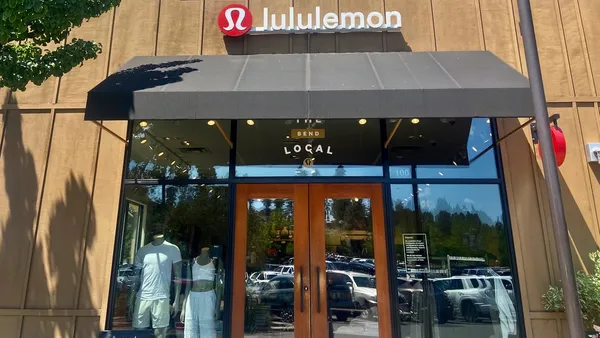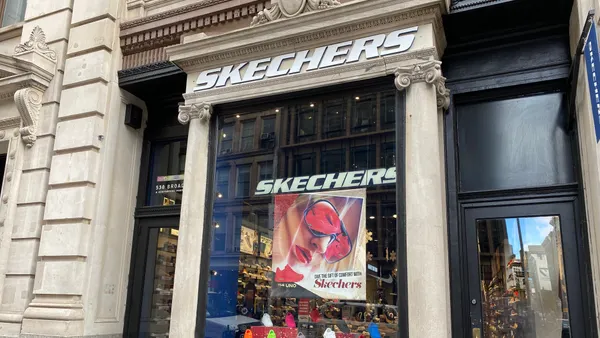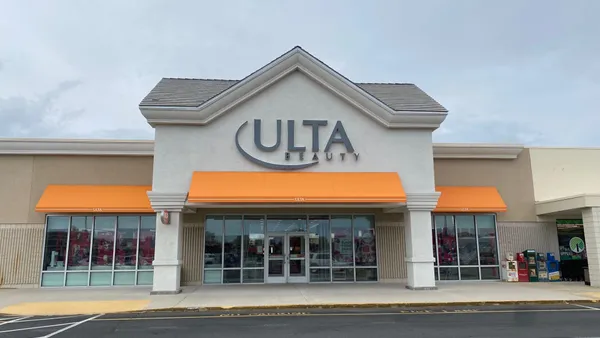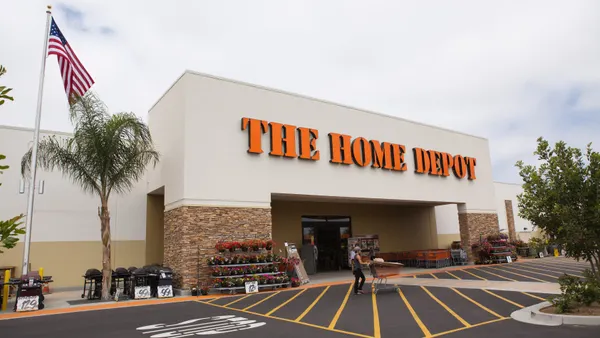Dive Brief:
- Party City is shuffling its c-suite, with CEO Jim Harrison transitioning to vice chairman, effective April 1. Brad Weston, currently the CEO of Party City's retail unit and president of the Party City Holdings umbrella company, is set to take over the Party City CEO spot from Harrison, according to a press release Thursday.
- The executive transition follows a fourth quarter in which revenue decreased 9.2% year over year to $731.6 million and retail sales decreased 12.4% due to store closures, the sale of its Canadian retail business and poor Halloween sales. Sales for the full the fiscal year were down 3.2%.
- During 2019, Party City closed 35 stores, and has closed another 20 stores since the end of the fiscal year, according to the company.
Dive Insight:
Party City executives on Thursday unveiled their priorities for the retailer going into 2020, highlighting five key areas: in-store experience, beefing up balloon sales, addressing "price value perception," pivoting to customer engagement in stores and building on its omnichannel capabilities.
Plans include new pilots of store formats that would speed up a shop-in-shop layout. The new formats would also improve the customer experience with balloons, a category that executives said, on a call with analysts, they want to "win." The efforts to boost the balloon category also include delivery service and comprehensive training for store employees.
In the retailer's stores, the company also plans to transition from an "operational and maintenance" culture to a customer engagement and sales culture, to capitalize on selling opportunities at Party City's physical locations and store associates, executives said.
The retailer also expects to expand its party planning program, in both the digital and physical worlds, as well as its omnichannel capabilities, which is a big driver of Party City's digital sales. In 2019, North American e-commerce sales increased 14.8% with BOPIS (buy online, pick up in-store) sales included, versus 2.8% increase of non-BOPIS digital sales.
Party City's Q4 performance
| Metric | Q4 | YoY |
|---|---|---|
| Revenue | $731.6 million | -9.2% |
| Retail sales | $571.4 million | -12.4% |
| Wholesale revenue | $157 million | +4.6% |
| Gross profit margin | 40.3% | -500 BPS |
| Net loss | $268.8 million | -373% |
Source: Part City press release
All of these plans follow what Harrison described in the call and a statement as a "challenging" year, given a helium shortage that cut into balloon sales and margins as well as the company's own execution issues. Of particular concern to investors and analysts was the steep decline in comparable sales at Party City's dedicated Halloween stores. Those are sales that can't be made up for another year and could point to competitive issues the retailer has in the category.
Going into 2020, the company estimates total revenue to decline by mid-single digits and brand comparable sales to be down in low single digits. It is also prioritizing its debt pay down during the year, as it manages a debt load of $1.7 billion. That guidance does not reflect any potential impact of the COVID-19 virus. Executives Thursday said that it was too early to determine any possible demand impact on the retailer's sales but that the company has been getting positive signals out of suppliers around production.














